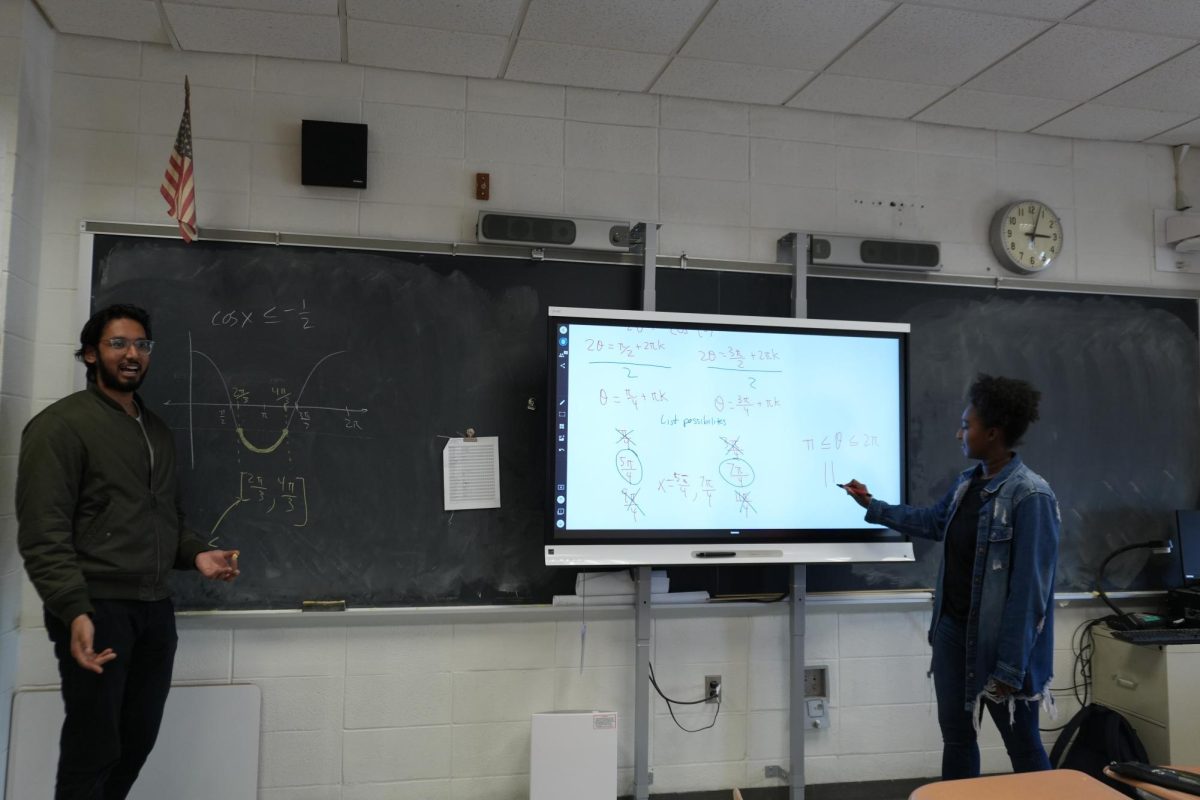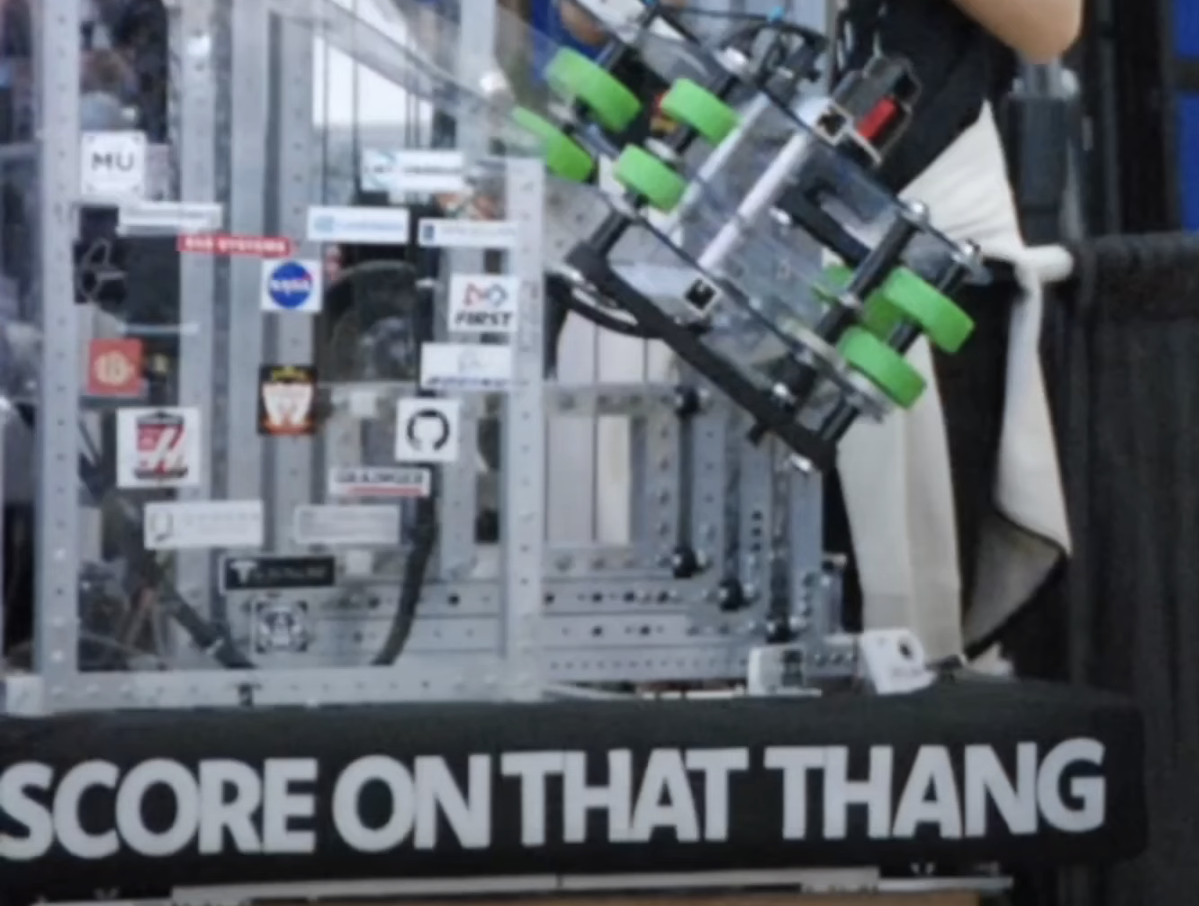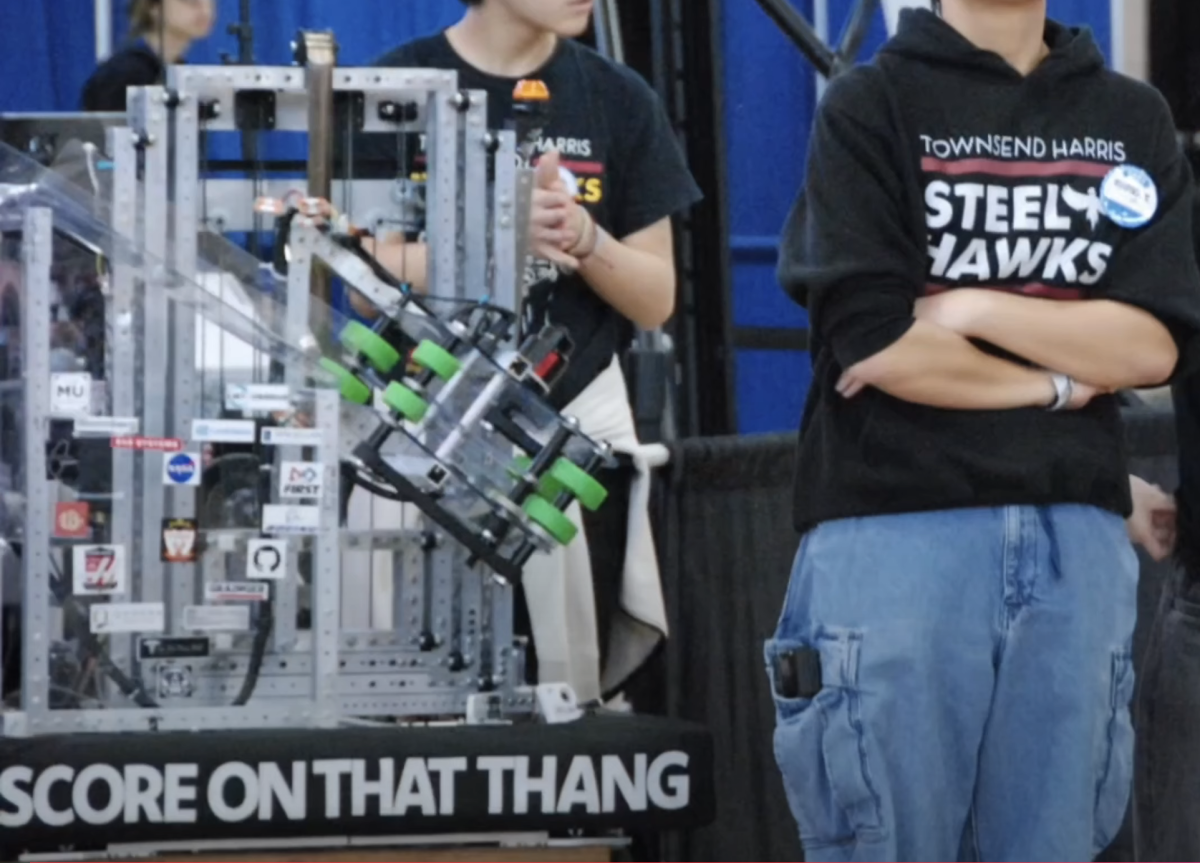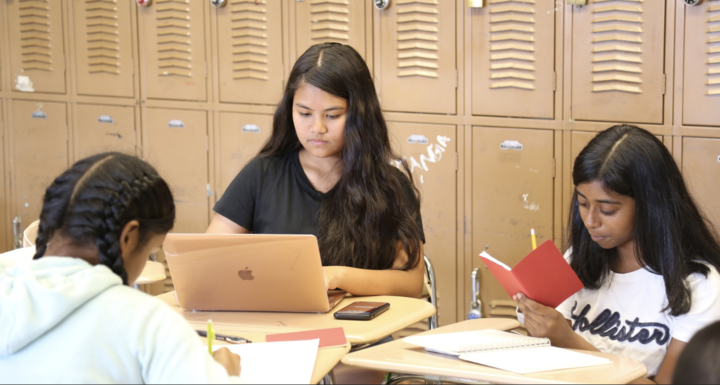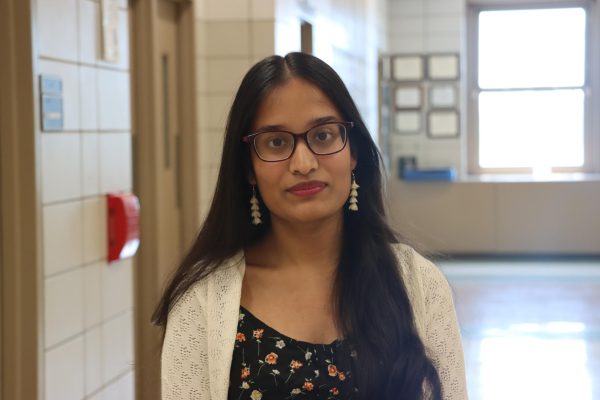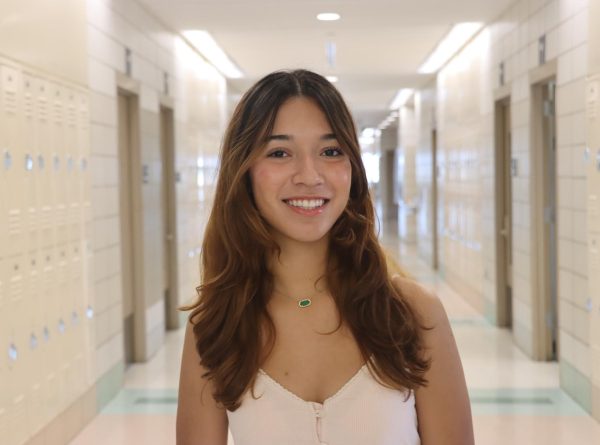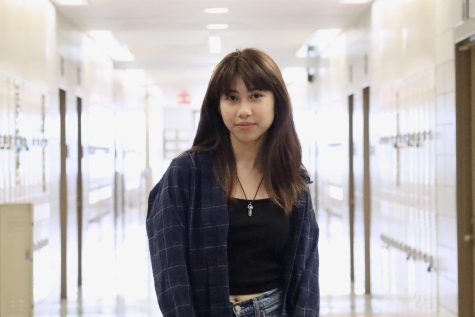
In April 2014, the New York Daily News reported that parents at Townsend Harris High School were angry. The New York City Department of Education was pushing THHS to expand access to special education students as part of a wider initiative to require selective NYC high schools to increase the amount of seats offered to students with disabilities. According to the Daily News, the Townsend Harris PTA emailed then Chancellor Carmen Fariña, furious that the DOE would “hand over seats to completely unqualified students.” In the article, one parent argued that the school was ill-equipped to serve special education students.
“I’m familiar with the services that are needed for special education kids, and they don’t have any of them at Townsend Harris,” the parent told the Daily News.
With the article reporting that only one special education student had gained admission to THHS the previous school year, that parent was likely correct in her assessment of the services available at the school.
Ten years later, however, the THHS special education program, now known as the Instructional Support Services (ISS) department, has transformed the school. In fact, ISS is now the largest department in the school and has gone from serving that one special education student to over 200 students (which is around 15% of the student population).
According to data provided to The Classic by Assistant Principal of Guidance Jessica Graf, 99.5% of students with IEPs graduated with a Regents Diploma over the past five years. The same percentage of students with IEPs who have graduated are enrolled in college. Moreover, the inclusion of this population has not deterred the wider public from seeking admission to THHS. Thousands of students continue to apply each year. In short, the sky has not fallen.
Parent advocates for students with disabilities say that the school hasn’t just survived this shift, it’s created a model for other schools in the process.
Jennifer Choi works at Special Support Services as an advocate for parents of students with disabilities and is the parent of a student at THHS. Last January, she testified to the City Council Education Committee about high school admissions for special education students. She urged the Council to investigate a series of practices at NYC schools that she said “directly or indirectly” communicate that special education applicants will not receive all mandated services they are entitled to if they accept offers to the school.
“Some of the specialized high schools will take weeks to respond to parents [of admitted students] for simple special education questions,” she said. “The parents take that delay as [a message saying] ‘don’t come here.’”
However, while urging the City Council to investigate what is going wrong in city schools, she also urged the council to look at the schools that are doing it right.
“Townsend Harris High School in Queens is a model of top level education in this country,” she testified, “and it is also a model of special education support services here in this city. They are proving to this city that parents do not have to choose between their child’s education and their child’s disability supports.”
This remarkable shift, from April 2014 where PTA parents were arguing against admitting special education students to a 2023 City Council testimony arguing that Townsend Harris is the model for special education support at top city schools, is perhaps the defining story of the past decade at THHS. To mark this ten-year journey, The Classic has investigated how the school has made this shift, what distinguishes the program, and what the future holds.
The story of this shift begins in June 2014. Then Assistant Principal of Guidance Veronica York was in charge of overseeing the expansion of special education at THHS, whether the PTA at the time liked it or not.
She began by hiring one ISS teacher, Georgia Brandeis, who was the first ISS teacher at THHS and was in charge of helping 11 special education students begin their high school careers. This past January, Ms. York left THHS to become principal of Ballet Tech in Manhattan, and this past October, Ms. Brandeis left to join the DOE’s central offices. Numerous parents of students with disabilities whose children go to THHS credit both Ms. York and Ms. Brandeis with making the Townsend Harris ISS program what it is today.
Brian Condon has been the principal of THHS for seven of the ten years in which ISS has been part of the school. During his tenure, the number of accepted students with disabilities has grown dramatically, and so has the size of the ISS staff. In an interview with The Classic, Mr. Condon said he’s been committed to expanding access since he started at THHS.
“It comes down to a very, very simple commitment. It’s simple to commit to but it’s hard to follow through on. It’s a commitment that every student that walks through the front door of our school should have access to every single course that we offer, especially the most advanced ones,” Mr. Condon said.
To do this, he said he had to do two key things: first, he staffed a dedicated position for an ISS assistant principal (Ms. Brandeis was not an assistant principal of ISS until he created the position and appointed her in 2018). Second, they then had to expand the teaching staff to support students with disabilities.
In investigating how ISS has grown since 2014, it’s clear that the widespread adoption of the co-teaching model (and the budgetary moves required to support it) helped make the commitment Mr. Condon described possible.
PROVIDING ACCESS THROUGH INTEGRATED CO-TEACHING
In 1990, Congress passed the Individuals With Disabilities Education Act (IDEA), which required every American public school to create an Individualized Education Program (IEP) for each student with a disability that attends the school. Under IDEA, these individualized programs should offer access to an inclusive experience that puts students with IEPs together with all other students at the school “to the maximum extent possible.” This is otherwise known as placing students in the “least restrictive environment” whenever it can be done. A common method for achieving this is for students to have IEPs that require Integrated Co-Teaching (ICT).
In an ICT class, there are two teachers, a general education teacher and a special education specialist. Their job is to co-plan and co-teach together to meet the needs of all students in the room, and to ensure that students in the class who have IEPs get the services outlined in their IEP.
In her testimony to the City Council, Ms. Choi said that some schools in NYC might tell parents interested in their children attending a given school that ICT courses are unavailable. She said “some will even tell parents that they will amend the IEP to remove ICT from [the student’s services] so that the student could take an AP class.” She said that this is against federal policy outlined in the IDEA, and that it’s also common for Gifted & Talented schools to ask families to remove ICT from a student’s IEP rather than providing ICT services.
In contrast, all core departments at THHS offer multiple ICT courses, and all core departments offer ICT AP courses. Overall, about 50% of all core subject areas consist of classes with co-teachers. There are ICT sections of AP English Literature, AP English Language, AP World History, AP US History, AP Physics, AP Pre-Calculus and more.
This widespread availability of ICT courses is a prime reason why the ISS department has grown so much since 2014. The more ICT courses taught, the more ISS teachers the school needs to hire.
“More co-taught classes ultimately allow for greater access,” said ISS English teacher Natali Frank, who is serving as ISS Coordinator while the school awaits a full-time replacement for Ms. Brandeis. “Any student in our school community can access Advanced Placement and college-level courses, regardless of whether they have an IEP or not. The ISS department operates under the firm belief that having an IEP is by no means an indicator of what students are or are not capable of but is instead simply a unique plan intended to support a student’s documented needs.”
“A lot of high schools do not offer [ICT AP Courses],” said Rachel Ford, a parent advocate who also works for Special Support Services and is a THHS parent, “which means that many students with disabilities cannot take AP courses.”
“Greater access to co-taught classes and faculty whose expertise is specialized instruction was an important way” that THHS has broken down barriers that normally hold back students who have IEPs, Ms. Frank said.
Junior AJ Botsaris, who has an IEP, said that she has taken four AP classes at THHS so far, and each class was co-taught. “Many of my classmates with IEPs and I can confidently say that we receive sufficient support from each of these teachers, and they are more than willing to provide resources or assistance whenever we are struggling,” she said. “Most importantly, none of us feel infantilized or treated in an unfair manner. Our teachers treat us as equals to our peers, and it is clear that they respect us, and the feeling is mutual.”
Former Classic editor Matthew Merino, who was a student with an IEP at THHS and graduated in 2022, also shared his thoughts on ICT courses the school.
“For a great majority of my core classes, I felt that there was a great amount of chemistry between the two teachers in a ICT class,” Matthew said. “I’ve never felt that the ISS teacher would cater only to us ISS students. Rather, in a lot of cases, they worked together as a team for the benefit of the whole class.” He added, however, that there were times where he would have liked to have waived his IEP’s ICT requirements in order to gain access to even more course options.
Assistant Principal of Organization Ellen Fee said that budgeting to ensure the school can pay to have enough ICT teachers requires careful coordination between her office and the ISS Department. Students with IEPs that require ICT courses receive a certain amount of funding from the city to meet their needs. If the ISS Department works to ensure that the necessary information about students who require ICT services is properly entered into the city’s Special Education Student Information System (SESIS), Ms. Fee is able to access funds and ensure the school has enough ISS teachers to meet the ICT needs of students. Given the amount of students with IEPs at THHS, properly designating them in SESIS can take some time, but Ms. Fee said that it ensures the school can plan ahead and offer the appropriate services.
“If [the ISS department does] it correctly ahead of time, then I get this money and then I can budget and can look at how many more teachers [we can hire],” Ms. Fee said.
Parent advocate Connieann DePaola has interacted with the ISS program at THHS for over two years due to having a child with an IEP in the school. She spoke to The Classic about the ICT class taught by math teacher Abid Choudhury and ISS math teacher Kayla Gill. She praised Mr. Choudhury and his ability to “distinguish [his students’] ‘tells’ [and how he] checks in to reassure [them] when he sees an ‘episode’ is coming on.”
Though Mr. Choudhury is the “general education” teacher in the classroom this does not mean that students with IEPs are not his responsibility. Both teachers work with all students in the room. Having a large number of students with IEPs, many of the general education teachers at THHS have had to adapt their teaching styles based on the needs of their students. Although actively making these efforts can sometimes be difficult or time-consuming, Mr. Choudhury said that it is necessary to accommodate all students and do whatever is needed to make them feel comfortable.
“Different learners always have different needs,” Mr. Choudhury told The Classic, noting that this is true of all learners, whether or not they have an IEP. “So, there’s always some things you can do to help students understand in a different way. Some students are better at understanding things visually, and some students just need things explained to them differently.”
ISS teacher Valeria Jacobs, who currently co-teaches an ICT AP Physics course, said, “I’m constantly learning from [students] about what works best, how to reach them, how to make content relevant. What’s the point if it doesn’t make sense to [them]?”
Mr. Condon said he credits the inclusion of students with IEPs at THHS with making teaching better in the school overall. “I think the teaching at Townsend Harris has improved over the last seven or eight years,” he said, “and a lot of that has to do with the fact that we’re teaching students with IEPs. We’ve learned to become better teachers, more aware of our students and how different students learn.”
In addition to ICT AP courses, THHS also runs four ICT sections of the Humanities Seminar, which is the Queens College Bridge Year course that all seniors take for six college credits across the school year. Since the class is already co-taught by a THHS teacher and a Queens College professor, the ICT sections have three teachers (as they include an ISS co-teacher).
ENGAGING PARENTS AND STUDENTS
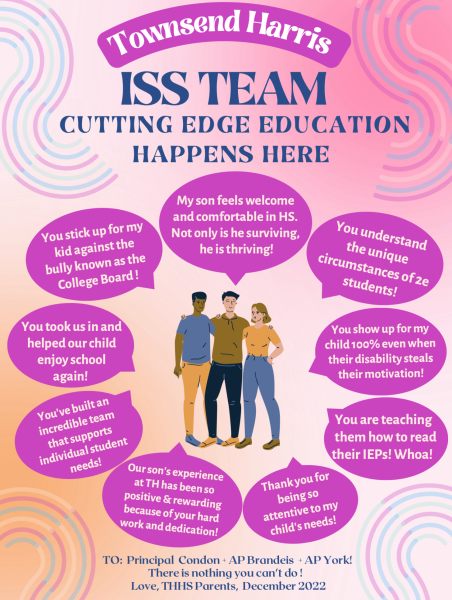
Beyond expanding access to courses of study by staffing tens of ICT sections, parent advocates say that what has set THHS apart goes beyond just its willingness to actually implement the federal mandates in students’ IEPs. A lot of what separates the school, they say, is its public embrace of the challenge, its willingness to try to figure out how to make the accelerated curriculum of THHS and all of its related opportunities accessible.
“When I was working professionally as an advocate, part of my work also was to go around the city to various professional development conferences and meet teachers and fellow educators, other advocates. And there were two women that I kept bumping into: Georgia Brandeis and Veronica York,” said Ms. Ford.
“We wanted to do the best things possible,” Ms. Brandeis told The Classic. “We would go to conferences and visit other schools. We kept coming up with every idea that we could possibly come up with to make our program the strongest one in the city. We wanted to be the best.”
Ms. Ford became so interested in what she was hearing from Ms. Brandeis and Ms. York that she started attending open house events at THHS to learn about its special education program. “We would come even before we had children that were able to attend just because we thought what they were doing was so unique. And so when it came time to actually have my children go, it was kind of a no brainer,” she said.
Just having an open house dedicated to admitted students who have IEPs sent a message that THHS was a welcoming environment, parents said. Since open house events can be hectic, having one dedicated to ISS enables parents to ask more targeted questions and receive more targeted information.
Ms. Choi told The Classic that one of the most significant issues parents have across the city is a lack of transparency about budgeting and how that impacts their child’s required services. Similar to her City Council testimony, she told The Classic that many schools try to convince parents to remove services that are expensive rather than provide them with honest information and the tools to fight to help the school get the money needed to provide those services.
“Instead of getting the truth, [parents] just get: ‘You don’t need it. I know you’re failing, but you don’t need it,’” she said. “I don’t see that kind of activity at Townsend Harris, and I’m not the only one that’s not seeing it. Other parents have reported to me that they don’t see things like that. And because of that, I find that [THHS is] cutting edge because it’s not easy to do what they’re doing.”
Ms. Choi also runs a Facebook group for parents of students with disabilities that has around 1000 members. She said that numerous complaints surface about how schools around the city handle special education, but she does not see the same complaints about THHS.
“Because I have a child at THHS, I get a front row view of how things work here, and because I have clients at different high schools, I can compare. Having a disability is not necessarily a problem. The problem is when the school is not providing the services that’s needed,” Ms. Choi said.
“The major difference that I identify with the THHS ISS team is the level of caring and understanding [for the students],” said Ms. DePaola. She singled out the IEP meetings that the department holds annually to review and update each student’s individual services.
One student with an IEP who spoke to The Classic said they felt that their needs were being met. “[The ISS staff] provides me with double time for assessments, ensures my testing proctors have print copies of my test to read aloud to me any questions and to describe to me any graphs I am confused about, and meets the needs of my bussing accommodation,” said the student, who asked to remain anonymous.
Another student who asked to be anonymous said that they felt they could advocate for their needs, and shared a story about a time when they felt that part of their services were not working for them. The student said the ISS department provided them with a way to update their services to address the issue within a day.
AJ also shared a story about a time when she petitioned for a change she felt strongly about. “[Ms. Brandeis] welcomed my idea enthusiastically by turning it into a bigger conversation [for other students in the program],” she said.
Ms. Jacobs said, “If a student tells us something isn’t working, we go with that and work with that. But we also work really hard to write good IEPs that are representative of what the students [need] so that we can best support them.”
Ms. Ford said, “I sometimes feel like I’ve entered another universe [when entering THHS]. There is a wide range of disabilities supported at Townsend Harris, and you can see that in the community of people that there are some disabilities [that] are visible, and some disabilities [that] are invisible.”
She expanded that this “wide range” can include anything from autism to dyslexia, to having a visual impairment to having a physical disability that requires using a wheelchair, and more.
“There are so many things disability can encompass,” she said.
While AJ spoke highly of how the school’s ISS program is structured to meet the needs of students with IEPs, she feels that there is a need to raise awareness in the larger school community and student body about how to destigmatize views on neurodivergence and disabilities. “I can confidently say that there is still much work to be done in making IEP students feel included,” she said. She’s hoping to start a club to do just that both within and beyond THHS. Matthew said that he and many other students in ISS had strong networks of social relationships, but he observed students with IEPs who could be isolated socially.
“Two of my peers and I have been advocating for a club next year that will educate K-12 students in NYC schools on inclusion and ableism, as well as how IEP students can learn about their rights and what helps them learn best in their environment,” AJ said.
“I would like to see some program…to ease and eliminate social barriers between the general student population and [students with IEPs],” Matthew said.
AWAITING A NEW ASSISTANT PRINCIPAL
Many members of the THHS community were surprised to hear that Ms. Brandeis had taken a job at the DOE’s central offices this past fall. Given that she left only weeks into the school year, after hiring is usually done for a new school year, the school had to come up with a temporary plan for her absence while working to hire a replacement.
According to Mr. Condon, a new ISS assistant principal will begin working at THHS next week in an “interim acting” capacity. He said he received over 100 resumes and held 20-25 interviews to find the right candidate.
Prior to this new AP taking over, Ms. Brandeis’s responsibilities have shifted temporarily to a team of several ISS teachers: Natali Frank, Vidya Chow, Nancy Badum, Katherine Gelbman, and Brian Remy.
According to Ms. Frank, this team’s shared responsibilities include coordinating annual IEP review meetings with families, maintaining the testing accommodations room, implementing new initiatives from the district, running required professional development, working with co-teaching teams to ensure ICT classes are running smoothly, and generally overseeing the day-to-day functioning of the department.
“We wear many hats and do our best to keep our students’ needs at the forefront of our experience,” Ms. Frank said. “Through the many responsibilities we hold, embracing our role as advocates for students is the most important.”
Though these teachers’ course loads have been reduced to maintain these responsibilities, they all have active teaching duties at the same time as they work to run the department.
Ms. Choi said that she has felt Ms. Brandeis’s absence this year, but she hoped that the incoming ISS Assistant Principal “has a lot of experience so they can come up with solutions that are productive and can do it as fast as she did.”
AJ said she has also felt Ms. Brandeis’s absence, and she misses the welcoming atmosphere Ms. Brandeis created in her office, as well as her overall willingness to help solve any problems students with IEPs faced.
She is looking forward to meeting her replacement. “Ms. Brandeis is a tough act to follow,” AJ said. “But we are readily here to communicate with the next AP and welcome them to THHS with open arms.”
“I’m pretty confident that we’ve selected the right person,” Mr. Condon said.
ISS math teacher Jamie Posner said that she is looking for a new assistant principal who believes in the mission of the ISS Department.
“We want someone who believes in us and what we do for the students and believes in our students and all that they can accomplish,” she said.
Additional Reporting by Carina Fucich, Isabel Jagsaran, Katherine Lian, and Sadeea Morshed



























